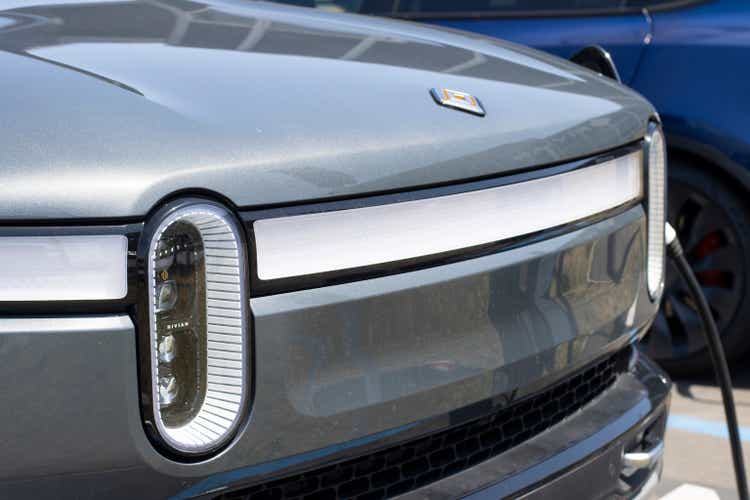
hapabapa
Rivian Automotive (NASDAQ:RIVN) sent some jolts across the electric vehicle sector with its announcement that the company would form a joint venture with Volkswagen (OTCPK:VLKAF) (OTCPK:VWAGY).
The initial and planned investments by Volkswagen (OTCPK:VLKAF) of $5 billion, in addition to Rivian’s (RIVN) current cash position, are expected to provide the capital to fund the electric vehicle maker’s operations through the ramp of R2 in Normal, Illinois and the midsize platform in Georgia, which is seen as enabling a path to positive free cash flow and meaningful scale.
“This partnership brings Rivian’s software and zonal electronics platform to a broader market through Volkswagen Group’s global reach and scale,” noted Rivian (RIVN) CEO RJ Scaringe.
The early reaction from analysts is that the Volkswagen (OTCPK:VLKAF) investment will give Rivian (RIVN) more flexibility as it grows toward profitability. While the joint venture does not include collaboration between the companies on electrical hardware, motors, batteries, and vehicle platforms, the development of next generation software-defined vehicle platforms could be shared with other companies. “While the announcement is a vote of confidence in Rivian, we think it does little to change the company’s operating issues and troubling cash burn rates, which have been around one billion dollars per quarter,” warned CFRA’s Garrett Nelson. “The key question is why would VW make such an investment in a struggling EV manufacturer that could face going concern risk in the future, but clearly VW sees value in gaining access to RIVN’s vehicle architecture and software,” he added.
Shares of Rivian Automotive (RIVN) jumped 49.9% in postmarket trading, after gaining 8.6% during the regular session. The EV stock still trades well below the $78 IPO pricing level from 2021 and all-time closing higher of $172.01.
Sector watch: The pullback by major automobile manufacturers from aggressive electric vehicle strategies has increased speculation that partnerships may become more common. Morgan Stanley has postulated that an option for the legacy automakers is to pull the collaboration lever. General Motors (GM), Ford Motor (F), and Stellantis (STLA) could work with China, work with EV startups, work closely with each other, or even work with Tesla (TSLA) on a licensing or supply deal. That strategy would mark a reversal from the prior plan to copy Tesla (TSLA) through massive upfront proprietary investments in supply chain, unique manufacturing capabilities, ground-up software development, in-house battery sourcing, and downstream infrastructure. Of note, Tesla (TSLA) CEO Elon Musk said last year that the company was in talks with another major automaker about licensing full self-driving software. Some analysts think the aggressive moves by NIO (NIO) in Europe could be the precursor for a major partnership there with a local player.
Source link






